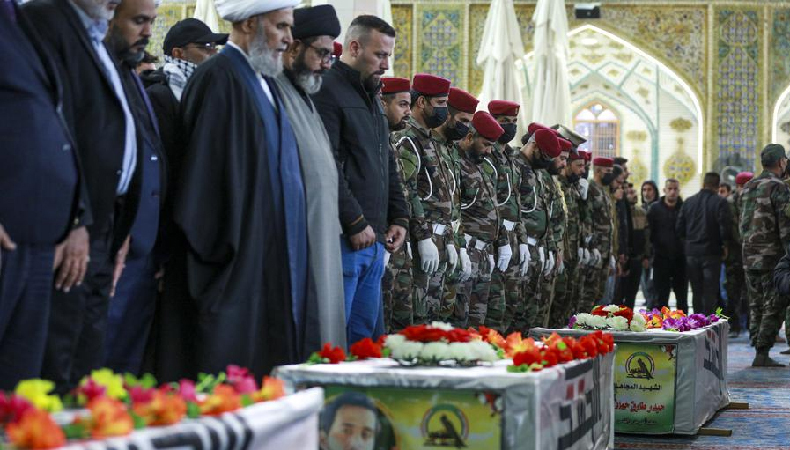Will US Continue its Balancing Act Amid Threat from Iran Proxies?

As Yemen Houthis intensify their attacks against Israel and US interests in the Red Sea, tensions between Washington and Iran are rising. The US military’s Central Command (CentCom) said the attacks represent a direct threat to international commerce and maritime security.
The Houthis claimed responsibility for recent attacks on commercial ships and a cargo ship, among others, saying they were Israeli. Rockets were also fired on US embassy in Baghdad, and on the Ain Al Asad airbase in western Iraq, as well as US army bases in Syria.
Attacks by Iran-based groups on US forces in Iraq and Syria are persisting. The US has also dealt significant blows on the militant groups, one on October 26 and another on November 8. But neither group, Iran nor Israel want a major regional escalation. They are doing a delicate balancing walk.
Iran in the Shadows
Fingers are being pointed at Iran for the sporadic attacks in the Middle East, especially in Syria, Iraq and the Red Sea. While Tehran denies any involvement in the attacks, Iran-backed militant groups continue their work.
Michael Rubin, director of policy analysis at the Middle East Forum, says Iranian leaders do not command underlinings what to do but rather instruct on what they cannot do. He said Iranians take the initiative in pursuit of terror. “There will never be any smoking gun within signals intercepts for the US intelligence analysts to find after the fact. This unique command system has fooled secretaries of state from George Shultz to Antony Blinken.
“To avoid accountability is to work through others. In the early days of the Islamic Republic, the Revolutionary Guards established local proxies in Lebanon, Afghanistan, the West Bank, and the Gaza Strip. Saddam Hussein’s fall transformed Iraq into fertile ground for Iranian-backed groups such as the Badr Corps, Kataib Hezbollah, and Asaib Ahl-e al Haq. The Iranian regime did not spark the Houthi rebellion, but co-opted it.”
Keep Reading
Kuwait Emir Sheikh Nawaf Passes Away at 86, Crown Prince Successor
Jordan Focused on Syrian Refugees Amid Wars in the Region
US and Iran – the Delicate Line
There’s a fine delicate line which the US and the Iran will not cross no matter how intense the fighting. According to the Crisis Group, this began to unravel in 2018, following President Donald Trump’s unilateral withdrawal from the 2015 Iran nuclear deal.
Frictions rose with Washington’s subsequent reimposition of sanctions on Iran as part of Trump’s maximum pressure campaign and its decision in April 2019 to designate the IRGC as a Foreign Terrorist Organization. It should be noted that fighting between the US and Iran-backed forces in Iraq formed the backdrop for the January 2020 US airstrike that killed General Qassem Soleimani, head of the IRGC’s elite Quds force.
When Joe Biden came to power, his first year was marked by frequent attacks on US forces in Iraq. And now the latest attacks appear to be a return to the status quo.




